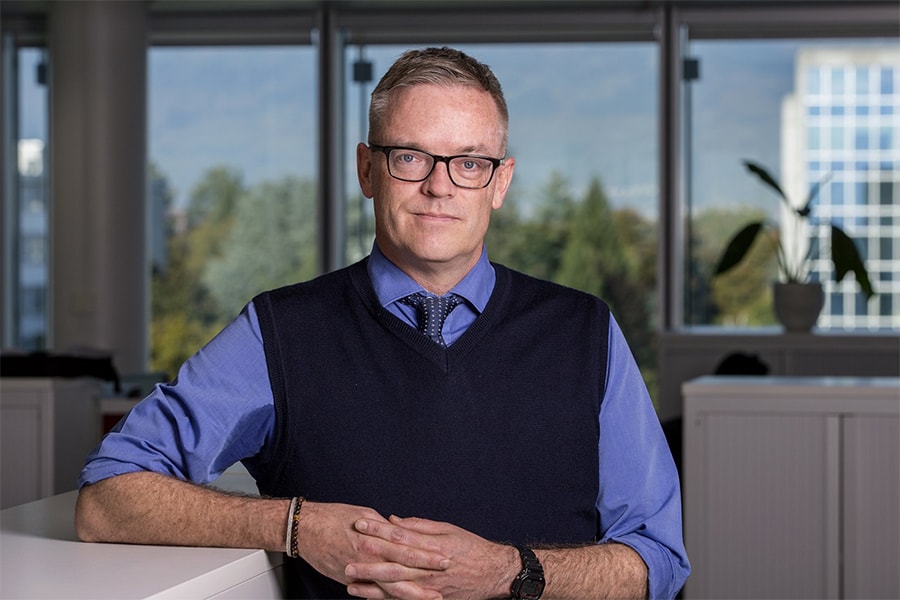
Public Health Communicator Makes Global Impact
By Ann Lyon Ritchie
Media Inquiries- Dietrich College of Humanities & Social Sciences
- 412-268-6094
When researchers in Latin America and the Caribbean needed to collaborate on HIV/AIDS, Carnegie Mellon University alumnus Tim Ryan conceptualized and developed an information and communication system. At the time, he was a technical writer associated with the Mexican National Institute of Public Health.
Ryan had gained the skills to make it happen as a 1996 graduate of the English Department's Master of Arts in Professional Writing (MAPW) program.
"Through the MAPW program I became equipped professionally in broad aspects of communication, such as project management and user-centered design. I would not have been as well prepared if I had gone through a narrowly focused technical writing program," Ryan said.
Globetrotting began for Ryan in graduate school when Nicole Vecchi, a 1986 alumna from the Dietrich College, offered him a summer co-op at the Swiss Scientific Computing Center near Lugano. Since then, the Massachusetts native has lived in five countries and visited more than 40, all while building up a public health communications career that has fueled his travel.
The World Health Organization (WHO) learned of Ryan's work in Mexico when it brought him to Geneva.
At WHO, Ryan served as project manager to develop a low-bandwidth solution for healthcare providers in Sub-Saharan Africa. He hired Steve Kuhn, a 1997 graduate of the CMU School of Design's Master of Design, Communication Planning and Information Design program. The product later evolved into the Knowledge Gateway — one of the most popular information systems used by health and development professionals around the world.
"It was great working with Tim. It's always fulfilling to work on a project that's both a good design challenge but also has a worthy impact on the world. I was glad to be part of it," said Kuhn, who is a product manager at a Brooklyn-based digital product consultancy.
"The MAPW program has an outstanding track record of preparing students for careers as writers, communications specialists and information designers to work in the new information era, an era in which it no longer suffices to only be able to write clear and effective prose. Though excellent writing remains foundational, it is also now necessary to create and execute complex information strategies involving both visual and verbal elements and media ranging from print and online to multi and social media. Tim exemplifies the resourceful, multidimensional communication professionals we help prepare," said Chris Neuwirth, professor of English and human-computer interaction and director of the MAPW program.

Tim Ryan
Today, after eight years in Thailand that included communications work for the U.S. Centers for Disease Control and Prevention, Ryan lives in Geneva, again. This time, he works for Unitaid, a global organization helping to defend the world against devastating infectious diseases by facilitating projects such as improving treatments for children with tuberculosis and promoting self-testing for HIV.
Ryan said some nations need not only greater access to existing health measures, but also new ways to prevent, diagnose and treat HIV/AIDS, tuberculosis and malaria more quickly, more cheaply and more effectively. Unitaid identifies and invests in such new health solutions.
As the grants performance manager, Ryan leads, develops and maintains the quality management and business improvement systems needed for effective grant implementation and performance at Unitaid.
His ability to move into a leadership role stems from "intellectual honesty" he developed in the MAPW program, Ryan said. It helps him to scientifically recognize and promote the best possible solutions, even when it means putting aside traditional approaches or his own initial conclusions.
Ryan brings together an impressive skill set with a global perspective — plus intellectual honesty — to move a technical writing career on an upward trajectory in public health communications.
"Unitaid has been an amazing opportunity that allows me to apply several of my professional strengths and interests, namely communication science, quality management and health, within an outstanding organization that is applying an innovative approach to achieve tremendous public good," he said.